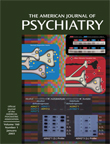The Difficult-to-Treat Psychiatric Patient
The title of this interesting volume suggests that there are in fact easy-to-treat patents. That is a truly hopeful message. Unfortunately, I have not yet located this referral source. Every patient presents unique challenges to the clinician. This volume is dedicated to the avoidance of certain common errors as a function of different diagnostic categories.
In the history of human thought there have always been fads and fancies. The practice of medicine is obviously no exception. The current buzzword for treatment is “evidence based,” which suggests that, in the past, treatment was based on divine communication. Treatment has always been based on evidence. The study of science reveals that today’s scientifically held beliefs are displaced tomorrow by a new set of scientifically held beliefs. The old beliefs were as evidence-based as the new beliefs. If medicine has a scientific base, that base will continue to evolve and change. There is no revealed eternal body of truth.
Another problem faced by the clinician is that the Food and Drug Administration (FDA) ascertains efficacy on the basis of nonrepresentative psychiatric populations. For example, the FDA will not include in a study sample patients with schizophrenia who have drug and/or alcohol problems, let alone a history of head injury. The clinician, then, is to use data based on patients without these disorders as evidence for the treatment of patients with schizophrenia in the real world, who in fact have more comorbid disorders. All the more reason why a volume such as this can be useful.
The editors have selected excellent people to write about particular diagnostic categories and the management of patients who suffer from those conditions. They discuss virtually every major psychiatric condition with balance and intelligence. It becomes obvious to the reader that the reservoir of “evidence” runs dry rather quickly; the clinician then must depend on judgment and experience. Although several authors make sincere attempts to guide the clinician in the management of patients, it is important to recognize the frequent return to the theme of the doctor-patient relationship. It is good to know during this period of evidence-based treatment that some leaders in American psychiatry recognize that the doctor-patient relationship is crucial in the management of all patients, psychiatric and otherwise.



